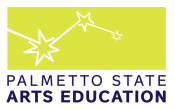We all know that it takes a village to develop and sustain a successful arts program. That includes having a highly motivated and competent teacher at the helm, student buy-in, support from parents, support from the community and support from school and district administration. If any one of these components is lacking or missing it is likely that achieving success, whatever that might be defined as, will be hard to come by. In our blog today we are going to take a look at support from school and district administration – what it looks like, is it given or earned, developing professional relationships and how to handle situations where you might not feel supported. What is Administrative Support?School and district administrative support for arts programs is going to look different from district to district, school to school, program to program and teacher to teacher depending on the scenario and a million different variables. That means there is not just one clear cut answer. What one district or school can do to support teachers might or might not be possible in other places. However, here are universal supports that can be provided by school and district administration, in my opinion.
Is it possible for every administrator to provide all of these supports to all teachers every single day? Of course not. However, it is a great place to start and a good way to do some self-reflection as an administrator to see if you are providing support to arts programs in the way it’s needed the most. Is School and District Administrative Support Given or Earned?The answer is very simple. BOTH! Some of the supports listed above are simple and come very natural to administrators. However, many of the supports listed above only come with trust. Trust is built when teachers demonstrate over time that he or she is highly competent, dependable and a team player. Remember, actions speak much louder than words. If you want a high level of trust and support from administration you’ve got to be sure you are 100% professional, 100% of the time too. Be on time, be organized and always be willing to be a team player. That means that you are willing to work with others outside of your arts area and do whatever is needed to be done. One last thing that will help you earn the trust of administration is to be FLEXIBLE. That can sometimes be hard for arts teachers but your flexibility helps the administration carryout initiatives that are important to them. Your willingness to help and your flexibility will make you a valuable team player. In the long run that builds credibility and trust and as a result you will feel valued and supported by school and district administration at a higher level. What Kind of Relationship Do You Have With Your Administration? Get to know your school and district administration. Communicate with them on a regular basis about all of the great things going on in your program. They should hear from you, know you and know your program long before a problem comes up. Watch this great video to hear more about this from a teacher’s perspective. What Can You Do If You Feel That You or Your Program is Not Supported by School and District Administration? This is not a concrete list and I’m sure all of you could come up with just as many if not more suggestions. However, here are my thoughts on what you can do if you feel that you or your program is not supported by school and district administration.
0 Comments
Your comment will be posted after it is approved.
Leave a Reply. |
About PSAEPalmetto State Arts Education is a network of professionals dedicated to advancing learning in and through the arts for all students in South Carolina. Categories
All
|


 RSS Feed
RSS Feed